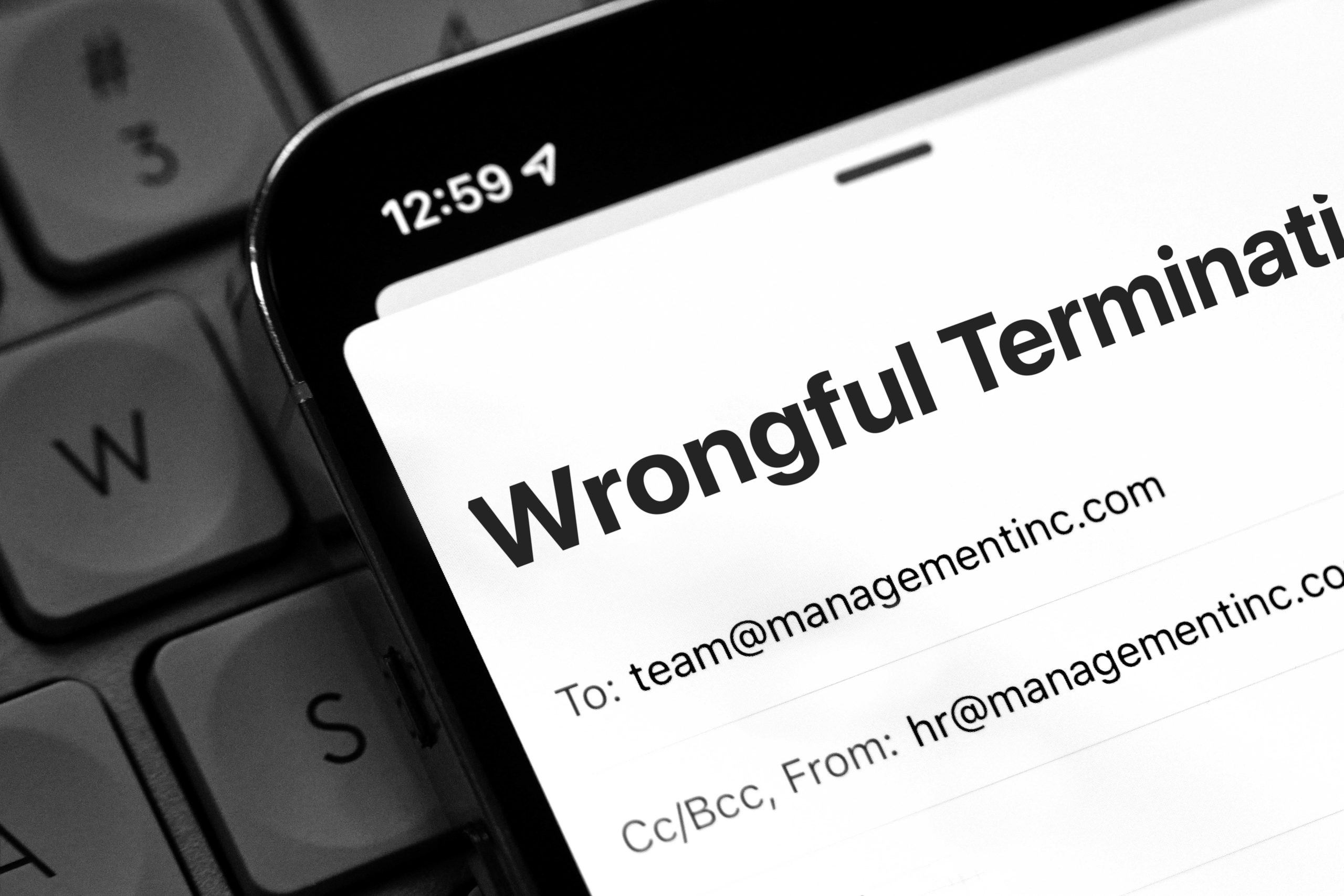Can I Be Fired While On Medical Leave?
There are very few certainties in life, but one certainty is that you will get sick from time to time. Most of the time, you will miss a day or two of work. But other times, you may be unable to work for weeks or even months. One of the most frequent questions I get is whether your employer can terminate you if you are unable to work for some period of time. Like most legal issues, the answer is “it depends.”
Personally, I find it unethical and unjust for an employer to fire an employee simply because the employee is unable to work for a period of time. But my personal feelings are irrelevant. The only issue that matters is what the law demands. And unfortunately for many employees, there are simply not enough protections provided to sick employees. Job protected medical leave is still the exception to the general rule that your boss can fire you for any reason. In other words, if you want to keep your job after getting sick and missing work, we will need to find a specific law that protects your job through illness.
The most common and important job-protected medical leave law is the Family and Medical Leave Act. The FMLA is a federal law that provides certain employees of certain employers with job-protected medical leave for up to 12 weeks per year. The Rhode Island version of the FMLA, the Rhode Island Parental and Family Medical Leave Act is very similar to the FMLA except it provides employees with 13 weeks of job-protected medical leave per two years. While the medical leaves under these two statutes are job-protected, they are unpaid, although an employee may utilize paid time off during his or her leave.
While the FMLA is very helpful for many employees, it only applies to employers with at least 50 employees. Moreover, to qualify for FMLA leave, the employee must have worked for the employer for at least 12 months, must have worked at least 1,250 hours in the past 12 months, and must work at a location where the employer has at least 50 employees within 75 miles of the employee’s worksite. The applicability of the RIPFMLA is slightly different but generally very similar.
Employees must be aware that not every single health issue will be covered by the FMLA or the RIPFMLA. Those leaves only apply to employees who are suffering from a “serious health condition.” A serious health condition includes a condition that requires an overnight stay in a hospital or other medical care facility, a condition that incapacitates you for more than 3 consecutive days and requires ongoing medical treatment (either medical visits or prescription medications), a chronic condition that causes periods of incapacitation and treatment at least twice a year, and pregnancy. As such, minor injuries that cause you to miss a day or two of work are generally not covered by the FMLA or RIPFMLA.
Many of the people I speak with assume that so long as they qualify for job-protected leave under the FMLA or RIPFMLA, they cannot be fired during their leave. But this is not true. Job-protected medical leave simply means that you cannot be fired because you are unable to work. Employers are still free to terminate you if you would have been terminated even if you were not on medical leave.
For example, I often receive calls from people who were having performance issues (whether real or simply imagined by the employer) and believed that their job was in danger. Often, they are stressed out by these issues and are ultimately written out of work for a period of time due to this stress. They are then terminated while out on medical leave and often assume that this is illegal. However, if the employer can prove that the employee was going to be fired even if they had not taken medical leave, they will not be entitled to be reinstated. Because the employer was planning on terminating the employee anyway, the taking of medical leave does not somehow protect you from that termination.
Another common circumstance is when the employer is laying off employees or eliminating job positions. If the employer can prove that it would have laid you off even if you had been working, the job-protected medical leave will not save you from the termination. Finally, if you were hired for a specific term or to work on a discrete project, and that term expires or the project is completed while you are out on job-protected medical leave, the employer will be able to lawfully terminate you.
For employees for whom the FMLA and RIPFMLA are inapplicable, there are only a few potential grounds for fighting a termination caused by a medical issue. First, as of 2018, the Rhode Island Health and Safe Families and Workplaces Act requires all employers to provide their employees with at least 40 hours of job-protected sick/safe leave. Those 40 hours generally must be earned over the course of the year (at least 1 hour of sick/safe time per 35 hours worked) but some employers simply provide all of the hours at the beginning of the year. As opposed to the FMLA and RIPFMLA, employers with at least 18 employees must provide 40 hours of paid sick/safe time. While smaller employers must provide the time, it does not have to be paid. Employees may use this time because they are too sick to work, are injured, have a routine medical appointment, or are dealing with the impact of domestic violence, sexual assault, or stalking.
Second, if your illness or health issue is a result of a disability from which you suffer, we will have to analyze whether your termination was a result of discrimination against you. State and federal disability discrimination laws do not provide disabled employees with protections greater than non-disabled employees. They simply require that employers treat disabled employees the same as non-disabled employees. As such, if you do not qualify for job-protected medical leave, and your employer routinely terminates employees when they fall ill, there is probably little we can do to fight the termination. However, if your employer routinely allows employees to keep their jobs despite them getting sick and missing work, but denies a disabled employee that same benefit when he or she gets sick, that could be unlawful discrimination.
Of course, there are many other exceptions, factors, and caveats regarding medical leaves and your right to remain employed. Certain types of employees who otherwise qualify for job-protected leave may be shocked to discover that the relevant statutes have exceptions that disqualify them from these protections. As such, if you are ever fired while taking medical leave, or after you have announced an intention to take medical leave, it is always smart to call Enright Law to discuss your rights. We will review your specific circumstances and let you know if your termination was lawful or not.
Paid Sick Leave and Expanded FMLA Under the Families First Coronavirus Response Act
Effective April 2, 2020 (or April 1, 2020 according to the United States Department of Labor), the Families First Coronavirus Response Act (the FFCRA) provides, among other things, paid leave to many employees affected by the current Coronavirus pandemic.
Continue readingSometimes The Customer Is Wrong
Employers are legally obligated to provide their employees with a workplace free from sexual harassment. Whether the perpetrator of harassment is an employee or a third-party like a customer, client, or vendor is generally irrelevant.
Continue readingWhat Is Unlawful Employer Retaliation?
Employers retaliate against their employees for all kinds of reasons and in all kinds of ways. Some of those reasons, while often unfair and contemptible, are perfectly legal. While others constitute violations of the law. It can be difficult to tell the difference between the two.
Continue readingPaid A Salary? You Still May Be Entitled To Overtime Wages.
State and federal law generally require most employers to pay their employees overtime wages unless the employee is exempt. One such exemption exists for certain salaried employees. However, just because an employer has decided to pay you a salary, does not necessarily mean that you are automatically exempt from overtime wage laws.
Continue readingWho Are These People?
There is no doubt that the lending industry has become needlessly complicated. Part of the reason for this is to keep consumers in the dark about their loans. Consider this post an introduction to some of the more common entities involved with your mortgage loan.
Continue readingThe Rights Of The At Will Employee
At will employment limits the rights of employees. But it does not foreclose all rights. Just because you are an at will employee does not mean that your employer is totally free to terminate you for any reason at all.
Continue reading







